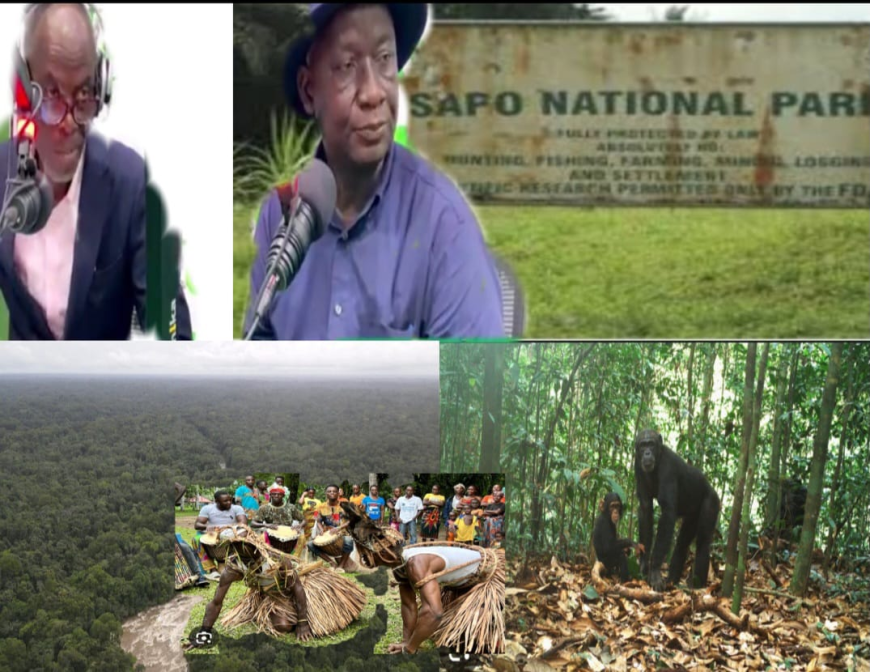Liberia Forest Media Watch Slams FDA Over Improper Handling of Sapo National Park

Monrovia, Liberia: The Liberia Forest Media Watch (LFMW) has strongly criticized the Forestry Development Authority (FDA) and the Government of Liberia for what it describes as the "dismal" management of the Sapo National Park.
LFMW is a coalition of investigative environmental journalists dedicated to tracking and reporting on forest-related issues such as illegal logging, deforestation, and environmental degradation across Liberia
Speaking during a radio interview in Monrovia, LFMW Chairman Kpayon Philip Wakoko expressed deep concern over the increase in illegal mining activities within the park.
According to him, despite submitting a formal complaint to the FDA and relevant government bodies, no effective measures have been taken to address the situation.
Wakoko described the scale of the illegal mining as “industrial-scale looting” of one of Liberia’s most important protected areas.
He accused the FDA of neglecting its duty and allowing the park to be degraded, stating that portions of the Sapo National Park have been turned into a recreational ground where individuals gather to watch football and consume alcoholic beverages, acts he deemed unethical and contrary to conservation principles.
Sapo National Park, established in 1983, is Liberia’s oldest and largest protected area.
It holds the second-largest expanse of primary tropical rainforest in West Africa, following Côte d'Ivoire’s Taï National Park.
It is home to numerous endangered species and serves as a vital biodiversity hotspot.
“The FDA has completely abandoned its responsibility. What we’re witnessing is not just environmental damage but a breakdown in law enforcement and accountability.”
The FDA, founded in 1976 by an Act of the Legislature, is tasked with ensuring the sustainable management and protection of Liberia’s forests and related natural resources for both current and future generations.
Wakoko called on the government to urgently address the issue and take decisive action against those illegally operating in the park.
He emphasized that the media, civil society, and international partners must bring this issue into the spotlight before irreversible damage is done.
"We have written. We have spoken. But the silence from authorities only confirms their complicity. The Sapo Park is being looted, and no one is acting."
The handling of Sapo National Park has faced numerous challenges, including destruction during the civil wars, illegal logging and poaching, and the impact of gold panning.
While efforts have been made to restore and expand the park, local communities within the park and surrounding areas have also experienced issues, raising concerns about equitable benefit-sharing and land rights.
It can be recalled that the House of Representatives requested the Committees on Tourism, Agriculture, and Forestry and Internal Affairs to probe the proposed expansion of Sapo National Park’s buffer zone and report back to the plenary in due course.
The decision follows concerns raised by Sinoe County District 1 Representative Thomas Romeo Quiah on Tuesday, March 4, 2025, during the House’s 13th Day Sitting of the 1st Quarter of the 2nd Session, in which the lawmaker highlighted the potential negative impact of the expansion on local communities.
Representative Quiah called for the appearance of the Minister of Justice, the Managing Director of the Forestry Development Authority (FDA), and representatives from Fauna & Flora International (FFI) and Conservation International (CI) to explain the rationale behind the expansion.
Representative Quiah expressed concerns that, despite significant international funding for conservation efforts, local communities remain in abject poverty while international organizations benefit from the funds.
What's Your Reaction?








































































